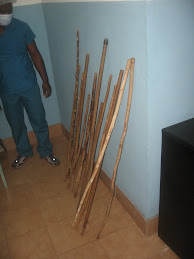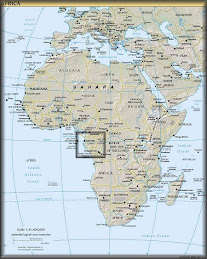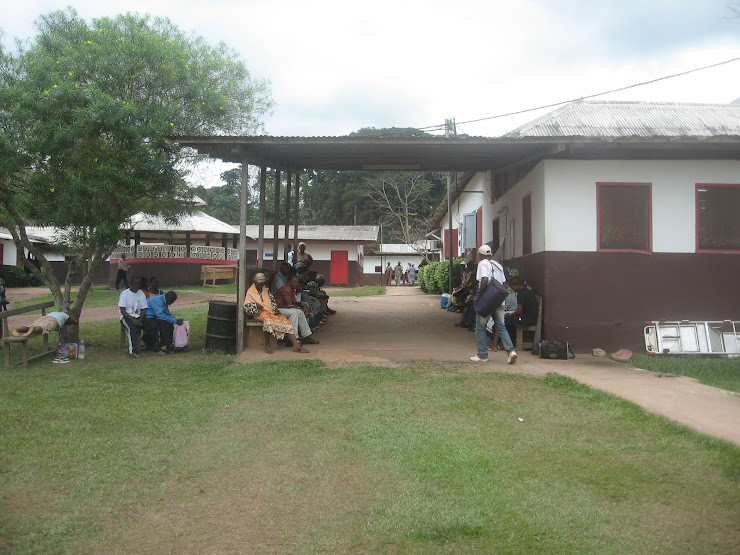Imagine that you have been told all your life that you are a second-class human. You are the poorest of the poor in a small village in rural Africa, and your family has always been poor....and always will be, you think. You are good at disappearing into the forest if unknown intruders enter your village, and you hunt well. But your first day at school, you are taunted so severely by the other children that you return home with your head hanging and refuse to return. What did they call you?
"Pygmy."

Racism exists in Africa, regarding the pygmies, although it is not evident in everyday life because they so effectively hide themselves from the rest of society that there is little interaction. This identity of shame is so deeply a part of pygmies that they struggle to make eye contact with anyone not of their tribe. Here is one girl who has red hair instead of black because of malnourishment as a result of poverty.

Our hospital administrator's wife, Jackie (a Gabonese lady), has had a heart to reach out and minister to this people group. Because Jackie has known some pygmies for years, they don't flee when she approaches. I had the opportunity to go with her on her latest trip a week or two ago. (Unfortunately, Eric fell ill with a fever and rash and stayed home to rest.) Here is a picture of Jackie.
"Pygmy."

Racism exists in Africa, regarding the pygmies, although it is not evident in everyday life because they so effectively hide themselves from the rest of society that there is little interaction. This identity of shame is so deeply a part of pygmies that they struggle to make eye contact with anyone not of their tribe. Here is one girl who has red hair instead of black because of malnourishment as a result of poverty.

Our hospital administrator's wife, Jackie (a Gabonese lady), has had a heart to reach out and minister to this people group. Because Jackie has known some pygmies for years, they don't flee when she approaches. I had the opportunity to go with her on her latest trip a week or two ago. (Unfortunately, Eric fell ill with a fever and rash and stayed home to rest.) Here is a picture of Jackie.

We came with Jackie's gift of words that would have made Jesus smile, I think. Jackie gave them a mini-sermonette and pointed to her skin (black) and their skin (also black). "What's the difference?" she asked them. "Do you think God made a mistake when he made me from my tribe, or you as a pygmy, or the missionaries here as Americans? No, He made you exactly how He wanted you to be. And He is very pleased with you! You should be proud to be who you are."

We also came with material gifts of clothing, shoes, hats, cooking oil, frozen turkey wings, rice, and toy animals for the kids. And Dr. Keir (a general surgeon) and I saw some patients there as well, as the pygmies are too poor to afford the transportation to get to Bongolo hospital (1 1/2 hours away). Below is where I did eye consultations in the first of two villages that day.


The pygmies are on average shorter than a Gabonese person who is not a pygmy, but it seems like they are a little taller now than from stories we've heard from 75 years ago here (Beyond the Mist is a book that tells the story of Don Fairley, who first started Bongolo in the 1930's, and it shows pictures of very short pygmies).
.
They have also begun to wear clothing similar to that of other Gabonese, which helps their social standing somewhat. Before, they wore only loinclothes. No one knows how many pygmies there are today in Gabon, because they really do melt into the forest when alarmed by strangers.
The children were happy with their gifts!





